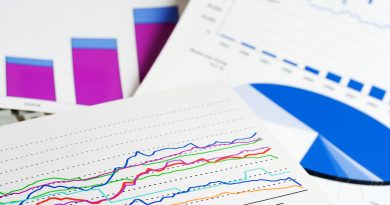Full rollout of QR PH P2M to accelerate shift to cash-lite economy: BSP
The Bangko Sentral ng Pilipinas (BSP) and the payments industry led by the Philippine Payments Management, Inc. (PPMI) marked another milestone in the country’s digital transformation journey with the full rollout of the QR Ph Person-to-Merchant (P2M) payment facility during a virtual event held on 12 October 2021.
QR Ph P2M, which simplifies digital payments made by customers to merchants, allows customers to transact with a wider range of businesses, including purchases of goods and services in department stores, pharmacies, supermarkets, hardware stores, and restaurants.
QR Ph is the National QR Code which uses the Quick Response technology and code scanning for payments. It benefits both customers and merchants through faster, easier, and cheaper payment options with greater convenience and security.
“Digitalizing merchant payments through QR Ph P2M is expected to have a far-reaching positive impact as it empowers small economic actors like micro, small and medium enterprises (MSMEs) to realize greater opportunities for growth,” said BSP Governor Benjamin E. Diokno.
P2M covers a broad consumer base that includes individuals, as well as MSMEs, which comprise over 98 percent of registered businesses in the country.
“Because of its low cost and ease of use, QR Ph P2M can enable small unbanked vendors, such as sari-sari store owners and tricycle drivers, to participate in the digital payments ecosystem and allow them to build financial profiles which may eventually facilitate their access to other financial products and services that can help them grow and enhance the resiliency of their businesses,” explained Governor Diokno.
With the full implementation of QR Ph P2M, more banks and non-bank e-money issuers join entities that have been onboard since the facility’s pilot launch on 30 April 2021.
The full launch means customers who have accounts with AllBank, Asia United Bank (AUB), Cebuana Lhuillier Rural Bank, China Banking Corporation, Land Bank of the Philippines, Rizal Commercial Banking Corporation (RCBC), Starpay, Union Bank of the Philippines (Unionbank), and USSC Money Services Inc. (UMSI) can now pay using QR Ph to more than 20,000 participating merchants in over 30,000 locations and whose accounts are with AllBank, AUB, BDO, Cebuana Lhuillier Rural Bank, Metrobank, PayMaya, RCBC, Starpay, Unionbank, and UMSI. With the interoperability feature of QR Ph P2M, consumers and merchants do not need to maintain an account with the same bank or e-money issuer to enjoy its convenience.
“We now have more tools to onboard merchants, especially MSMEs, or even informal merchants, and make it easier for them to accept digital payments, thereby widening the range of consumers and businesses who can have access to and enjoy the convenience of using digital payments,” said BSP Deputy Governor Mamerto E. Tangonan.
Later on, QR Ph P2M may also be used for bills payment.
QR technology has emerged as the most convenient payment method due to its speed and ease compared to conventional debit or credit card payments. Scanning also eliminates possible errors linked to the manual encoding of account information details. Customers just need to use their mobile banking or mobile payment app and scan the QR Ph code displayed by the merchant, key in the amount in some cases, and authorize the transaction to complete a payment.
QR Ph’s interoperable payment solution is powered by InstaPay, the country’s 24/7 fast payment system, which facilitates safe and efficient funds transfer across different participating payment service providers.
To use QR Ph P2M, customers need to download the mobile application provided by their bank or non-bank e-money issuers where the facility will be provided.
The rollout of QR Ph P2M builds on the Philippines’ successful adoption of QR Ph Person-to-Person (P2P) payments, its first use case for said technology.
According to the latest report of the BSP on the status of digital payments in the Philippines for 2020, over 70 percent of retail payments in the Philippines are made to merchants, majority of which are MSMEs, but only a quarter of these payments are made digitally.
Thus, onboarding more merchants to accept digital modes of payment via QR Ph P2M will significantly increase the share of digital payments and encourage more consumers to enjoy the full benefits of digitalization.
“With the strengthening collaboration of the BSP with the PPMI, along with key stakeholders from the government and private sector, we look forward to seeing more of our countrymen experiencing the convenience and safety of QR Ph P2M as we move towards a more financially inclusive and a vibrant digital Philippine economy,” said Governor Diokno.
“As we continue to work towards our shared goals of digital payment transformation and financial inclusion, the PPMI, its members and the public can count on the commitment of the BSP to continue fostering a policy environment that nurtures innovation without compromising safety, efficiency and consumer protection concerns,” added Deputy Governor Tangonan.



